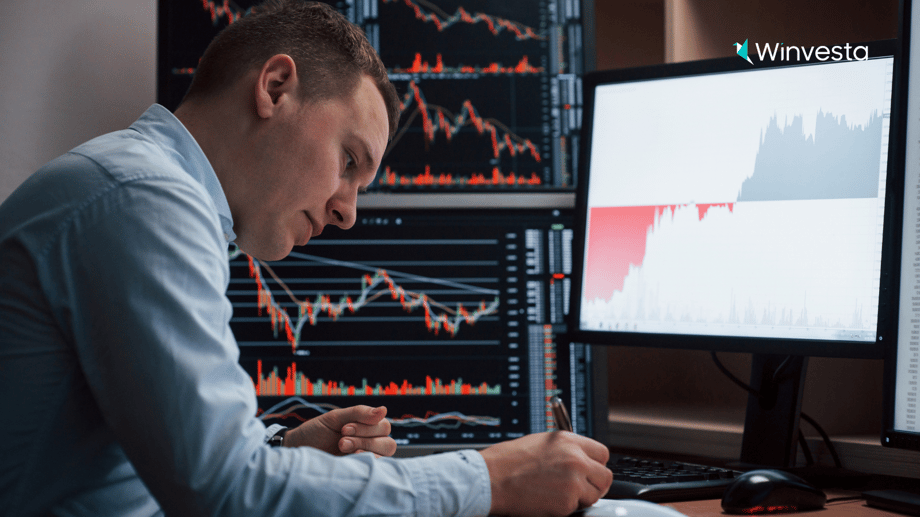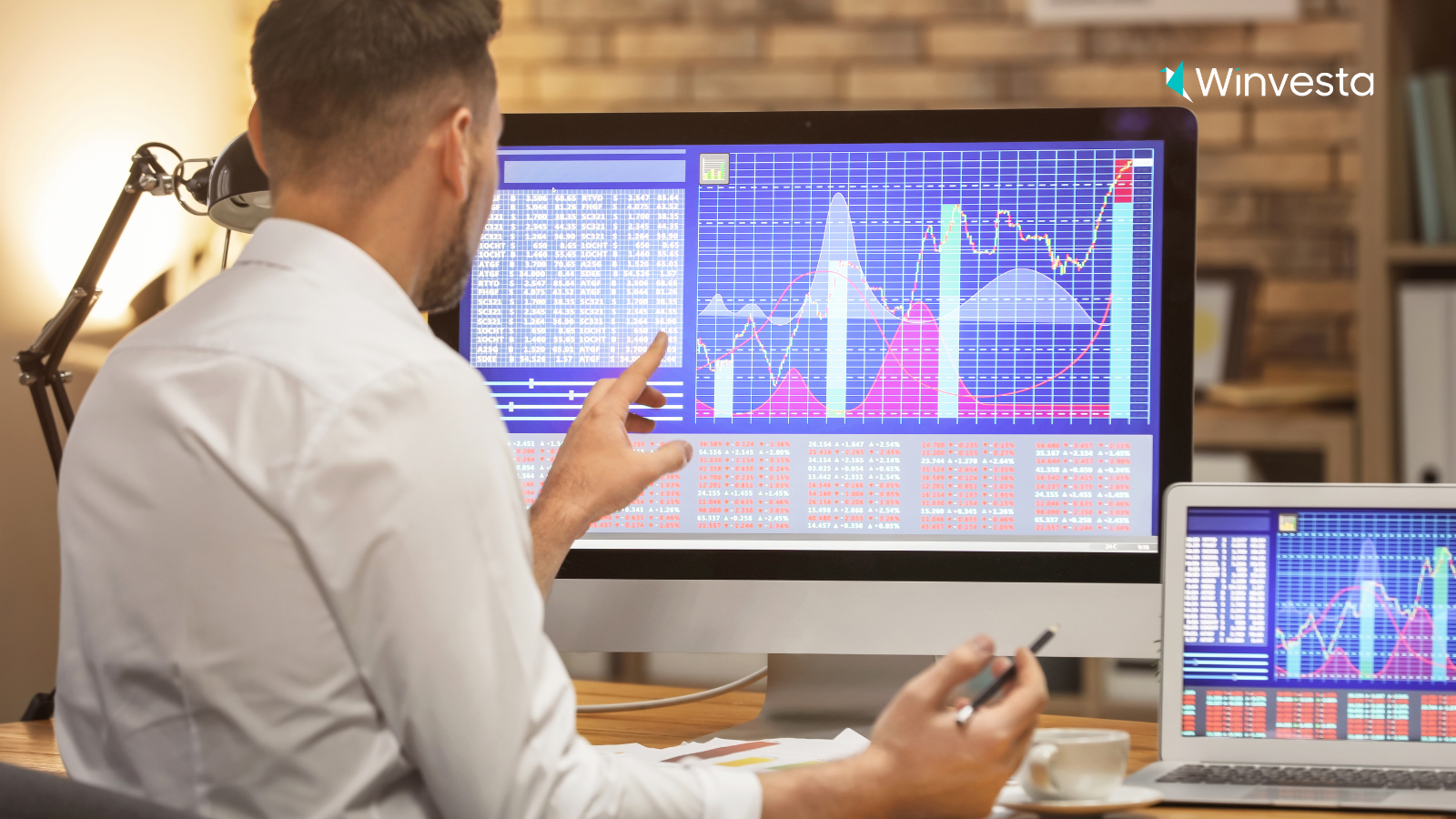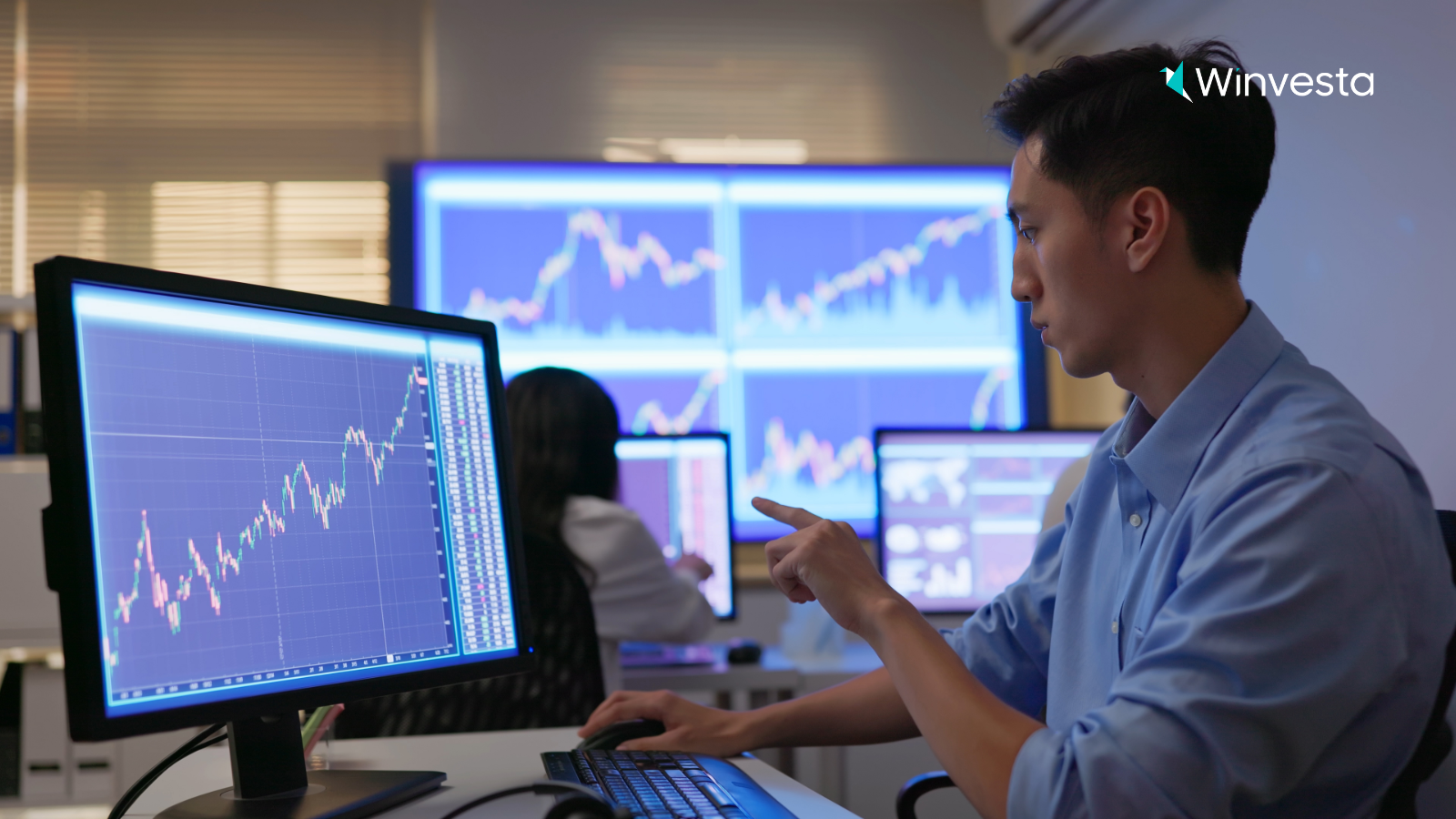Contents
Wall Street rebounds: Trade thaw and Fed stability revive investor confidence
2 minutes read
23 April 2025

Wall Street bounces back: Trade thaw and Fed stability revive investor confidence. Following weeks of chaos, US stock markets staged a fierce comeback on Tuesday. The Dow Jones rose over 1,000 points, and the S&P 500 and Nasdaq both rose over 2.5%. What fueled the rally? A combination of trade optimism, consistent cues from the Federal Reserve, and robust tech earnings. Here's a closer examination of what's fueling the rebound—and what experts are monitoring next.
Trade tensions ease, markets breathe
The past few months have witnessed the US and China embroiled in a tariff war, shaking global markets and pushing investor nerves to the limit. But on Tuesday, the atmosphere changed. President Trump suggested that tariffs on Chinese products might be "significantly reduced," though not abolished, giving rise to hopes of a de-escalation.
Treasury Secretary Scott Bessent reiterated that optimism at a JP Morgan investor conference, labeling the present standoff "unsustainable" and guessing that "eventual de-escalation" is on the horizon, even if the progress is glacial. The market reacted immediately: Amazon and Nvidia surged 3% after hours, Apple gained 2%, and the S&P 500 stormed 2.5% higher after weeks of strain.
As Carson Group chief market strategist Ryan Detrick summed it, "The roller coaster continues. Some easing of tension between US and China due to Bessent's statement helped push them higher. Washington understands that this uncertainty over tariffs is bad for the markets, and maybe something good on the trade front should be expected later"
Fed signals stability despite political noise
While trade negotiations made headlines, the Federal Reserve stance supplied a vital anchor for markets. Following a salvo of criticism from President Trump—including public speculation on dismissing Fed Chair Jerome Powell—Powell asserted the Fed's independence and its dedication to fact-based decision-making.
Addressing the Economic Club of Chicago, Powell stated, "For the moment, we are well-placed to await more clarity before contemplating any changes to our policy approach". He recognized the difficulty tariffs present, cautioning that "the magnitude of the announced tariff increases is considerably larger than anticipated," and that the uncertainty would dampen growth and increase inflation.
Jim Carroll, a Ballast Private Wealth wealth advisor, captured the sentiment: "I think people were expecting Powell to take a neutral stance, but he leaned hawkish instead.." Nevertheless, Powell's commitment to Fed independence and steady hand comforted many on Wall Street.
Earnings and outlook: tech leads, uncertainty lingers
Technology giants spearheaded Tuesday's rally. Tesla surged almost 6%, Netflix jumped over 6%, and the overall S&P 500 took advantage of positive corporate earnings. S&P 500 earnings were expected to grow around 8% this quarter, down from previous estimates but still robust against global uncertainty..png?width=1600&height=900&name=Us%20stocks%20(18).png)
Yet, not all signals are positive. The IMF has slashed its global growth forecast to a post-pandemic low, citing the drag from tariffs. US GDP growth is expected to slow to 1.8% in 2025, with inflation ticking higher as import costs rise.
As Minneapolis-based market research director Lisa Merz said, "Current earnings reflect a continuation of solid fundamentals, which is not unexpected. But investors are analyzing corporate guidance for insights on how companies will respond to tariff policies".
The bottom line: Tuesday's rally indicates that markets crave clarity—on trade, on Fed policy, and on corporate America's prospects. For now, a combination of optimism and caution is in charge. As one strategist characterized it, "The prevailing sentiment seems to be that the longer we remain in this state of uncertainty, the more detrimental it becomes for the economy”.
Disclaimer: The views and recommendations made above are those of individual analysts or broking companies, and not of Winvesta. We advise investors to check with certified experts before making any investment decisions.

Ready to own a piece of the world’s biggest brands?
- Invest in 4,000+ US stocks & ETFs
- Fractional investing
- Zero account opening fees
- Secure and seamless
Start investing in just 2 minutes!

Build your global portfolio.
.png)
Invest in companies you love, like Apple and Tesla.

Track, manage, and grow your investments.



